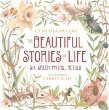 When I discovered this slim volume I thought that perhaps it would be intended for younger children. After all, it’s only 77 pages and a cute little square shape. I was a bit mistaken in that. Shame on me for judging books by their covers! I should know better by now.
When I discovered this slim volume I thought that perhaps it would be intended for younger children. After all, it’s only 77 pages and a cute little square shape. I was a bit mistaken in that. Shame on me for judging books by their covers! I should know better by now.
Edited to add Cynthia Rylant’s name alone is enough to sucker many teachers and parents into thinking this is a good call for young readers. Between her Henry and Mudge series, Poppleton series and her stories about her own childhood, she’s largely established herself as an author of picture books and early readers. It should also be noted that all my concerns and complaints (mostly outlined below) aside, the writing in this is beautiful.
Rylant is not messing around with vocabulary so younger readers may want a dictionary at the ready as they face down: shrewd, blatant, subtle, concoct, depravity, turbulence, integrity, inevitably, multitude, pallid and more. Then again, you may not want your younger readers around this one at all, because while never explicitly described, there is quite a bit of sex in here. I’m not sure younger kids need to know about hungering for a woman or feeling Eros’s touch in the night, euphemistic as it may be…
And then there is the depiction of women. Despite the old-fashioned illustrations, this book was published in 2009. So I can’t think of any decent excuse for women being written the way they are. Maybe it won’t bother you, but the standard of women being subservient and made only to please men is one that definitely bothers me.
Check out the following quotes:
“Pandora was the essence of femininity and she instinctively gave her heart and soul to her husband…She loved being a woman and wanted nothing more than to give her husband anything that might make him happy.”
“Persephone bent herself to Hades’ will, did what he asked, accepted what he offered, became what he needed.”
The qualities Pygmalion is looking for in a wife: “someone who would bring him fruit and cheese when he was hungry…someone who would smile at him and admire his craft, someone who might lovingly apply oil to his aching hands.”
Let’s not even talk about the tasks Psyche must undertake to win back Eros after she DARES to lay eyes on him.
Sex, Nudity, Dating – Epimetheus hungers for the love of a woman. The vision of Persephone moves Hades and “he wanted her.” Orpheus gets married. Pygmalion is admired by girls and wants a bride. A naked sculpture of a woman is shown in an illustration. Pygmalion’s wife bore him a son. In the story of Narcissus we are told that “there are those who fall in love with someone or something and are destroyed by the experience.” Zeus’s philandering (yep, that’s the word that’s used) is mentioned. Eros falls in love with Psyche. When he gets her to come to his palace, she is told to retire, for love will only come to her in darkness. THEN, in the dark of night, Eros comes to her; she feels his touch and finds peace in his arms.
Profanity – None.
Death, Violence and Gore – Hades grabs Persephone by the hair and removes her to the underworld. She feels life draining out of her. The bride of Orpheus is bitten by a viper and dies. Orpheus is torn into pieces by drunken nymphs and thrown into a river. Narcissus dies looking at his own reflection. Echo crawls into a cave and dies.
Drugs, Alcohol and Smoking – There are drunken nymphs.
Frightening or Intense Things – We’re told that Zeus’s wrath could destroy the world. The list of sufferings Pandora releases includes: disease, war, starvation, depravity and insanity. Everything about Demeter is both great and terrible, she tears at her hair when her daughter is gone. The dead look upon Persephone as they enter the underworld. Orpheus is insane before he is murdered by nymphs. Psyche’s parents are told that she is destined to wed a giant serpent.


Is it a translation or is the author just stuck in the past?
Weird. This is listed by the publisher for ages 9-12. Maybe not. Also, Rylant has done so much for younger kids, it is good to know this might not be their cup of tea- to say the least. Were the women wearing aprons and pearls by any chance?
Well, it’s not like ancient Greece was a particularly advanced society for women, but it isn’t a translation, it is a retelling. I think that authors are responsible for how they choose to frame things in a retelling and that Rylant made somewhat surprising choices given today’s audience.
Two other things that I’m going to amend the main post to include are:
1) Cynthia Rylant is mostly known as a children’s book author – she’s responsible for Henry and Mudge – this definitely adds to my initial theory that this would be a book for younger readers.
2) All criticism aside, the writing in this is beautiful. So you know, if you want to engage an older kid in a conversation about feminism in mythology at least you know this is quality prose.